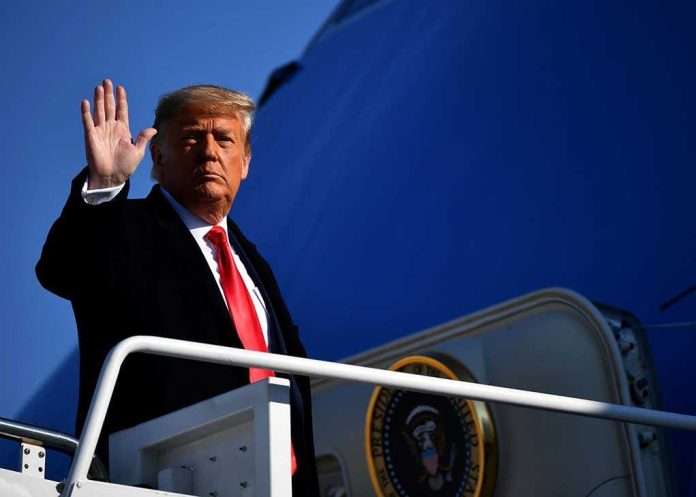
A presidential pardon once meant the end of a sentence, but for one January 6th rioter, it became the beginning of a new and even more disturbing chapter—one involving fresh criminal charges and a threat against a top member of Congress.
Story Highlights
- A January 6th rioter, previously pardoned by President Donald Trump, is now charged with threatening to kill House Minority Leader Hakeem Jeffries.
- The case raises urgent questions about the consequences and limits of presidential pardons.
- The incident spotlights the ongoing ripple effects of the January 6th Capitol attack.
- Law enforcement and Congress grapple with balancing justice, security, and political fallout.
Pardoned But Not Forgotten: The Path From Capitol Conviction to New Charges
Convicted and sentenced for his role in the January 6th attack, the New York man at the center of this story was among those granted a presidential pardon by Donald Trump—a controversial move that drew heated debates about accountability and justice. The pardon erased his sentence, but it did not erase the scrutiny of his actions or the vigilance of law enforcement. His subsequent arrest for allegedly threatening to kill House Minority Leader Hakeem Jeffries thrusts the pardon process back into the national spotlight, forcing the public to reconsider the reach and repercussions of executive clemency.
The timeline of this man’s involvement serves as a microcosm of the political and legal fallout from January 6th. After serving time for his role in the riot, he was released and pardoned, only to resurface with a new, violent threat against a member of Congress. The charges against him have reignited debate over Trump’s use of pardons, with critics arguing that such executive actions may embolden individuals or undermine ongoing efforts to restore public trust in the justice system. Supporters of the pardon process, meanwhile, maintain that each case must be judged individually, highlighting the tension between justice and mercy in American law.
The Ripple Effect: How January 6th Continues to Shape Political Discourse
The arrest has fueled renewed concern about political violence and the safety of elected officials. Hakeem Jeffries, as House Minority Leader, is a high-profile figure, and threats against him carry weight far beyond personal safety—they touch on the stability of democratic institutions. The Justice Department’s response has been swift and public, signaling an intolerance for threats against lawmakers and a commitment to prosecuting such cases regardless of the perpetrator’s political connections or past pardons.
My statement on the most recent credible death threat against me. pic.twitter.com/Z7VsIWFqLq
— Hakeem Jeffries (@RepJeffries) October 21, 2025
The ongoing saga of January 6th defendants and their aftermath has become a recurring narrative in American politics. Each new development—be it a pardon, a re-arrest, or a fresh indictment—serves as a reminder of the complexities facing the country as it navigates questions of accountability, forgiveness, and the protection of its democratic processes. This case, in particular, highlights the difficulty of balancing the rights of individuals with the broader need for social order and the rule of law.
Justice, Security, and the Limits of Clemency
Law enforcement agencies and congressional leaders are now confronted with the challenge of maintaining security in an era of heightened political tension. The timing of this arrest, so close to the anniversary of the original Capitol attack, is not lost on observers. Many see it as a cautionary tale about the long-term impact of divisive events and the importance of vigilance, even after formal legal processes have concluded.
The case also prompts a reevaluation of the presidential pardon as an instrument of mercy. While the Constitution grants the president broad clemency powers, the events surrounding this pardoned rioter suggest that the consequences of such decisions may be more far-reaching than previously understood. The episode is likely to spark further debate in Congress and among the American public, especially as new details emerge and the legal process unfolds.
Sources:
Pardoned Capitol rioter charged with threatening to kill Hakeem Jeffries at NYC event this week







